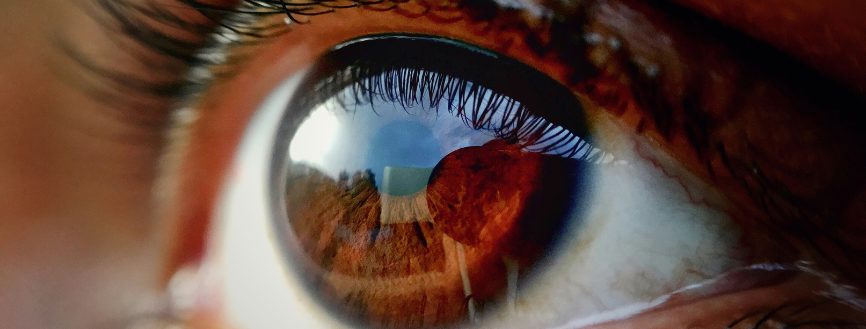Presse : Shapiro – Helping You And Your Children Make It Through Divorce
Mis à jour le 28 septembre 2022
Article « Helping You And Your Children Make It Through Divorce »
de Francine Shapiro
publié dans le huffingtonpost
Lire cet article (ou ci-dessous)
****
Helping You And Your Children Make It Through Divorce
Any relationship break-up can be tough, but divorce comes with its own problems and pitfalls. This is especially true if children are involved. Obviously, you can’t just walk away and take care of yourself. It’s important to minimize the negative effects that divorce will have on the children. The bottom line is that it’s vital to regain your own psychological equilibrium to make sure your children can get through the process unscathed. You can’t help your children if your own emotions are running wild.
It’s useful to understand that regardless of how objectively upsetting a situation might be, it’s sometimes compounded by unhealthy reactions. So, just as the safety announcements on airplanes urge you to put on your own oxygen mask first, make sure you have the tools to change your negative responses so you can focus on also taking care of your children. Research shows that children thrive with « attuned » parents and falter with those who ignore or minimize their feelings. Divorce can knock anyone off kilter, so don’t underestimate the negative effects that stress can have on you. Learn to manage your own reactions so that you can recognize when your children need comforting, and don’t push them away or minimize their pain. Be available to let them talk about their feelings and deal with any confusion they may have.
The need to regulate your own responses cannot be overstated. Your anger, depression or anxiety can cause lifelong problems for your children. Remember, just because negative reactions emerge does not make them true or useful. Self-help techniques can help you stay in control. You can find some in my book, Getting Past Your Past: Take Control of Your Life with Self-Help Techniques from EMDR Therapy. For instance, one adult client kept rehashing a fight. Another child client kept seeing his father angrily walk out the door for the last time. You can help yourself and your children get rid of distressing mental pictures by imagining it on top of paint in a can. Then, just stir it up. That disrupts « working memory » and makes it go away. You can also use other techniques to immediately change negative emotions or thoughts. This will empower both you and your children. It will also allow you to be present with your children and show enough happiness so they don’t feel like they have to take care of you. No child deserves that burden.
It’s also vital that you make sure to let your children know they are not to blame for what happened. Carefully explain that this was an « adult decision » and while things will be different, they are still loved and that will never change. Emphasizing this and saying « I love you » are a vital part of what children need in order to recover their own equilibrium.
Remember that children often take on blame for what goes on in their lives. It can haunt them for years in many ways and cause many emotional problems.
For instance, in Getting Past Your Past I describe how personalities develop and different kinds of problems emerge. It includes many examples of how children were derailed by the actions of their parents, and how they took on guilt that didn’t belong to them. EMDR therapy processing of the memories liberated them into a healthy life, but rather than allow problems to develop, it’s important that you make sure your children feel free of personal blame for the divorce. That includes not putting them in the position of « go-betweens » or « sounding boards » for pain and anger. I can’t tell you the number of adult children of divorced parents who report how painful it was to be in the middle, and how much it compromised their relationships with both parents. It’s important for the parents to set appropriate boundaries and handle difficulties with each other while leaving the children out of it. If you have to vent, do it with a grown family member, friend or a therapist. But make sure it’s in a location where the children can’t hear. Otherwise, youngsters can carry the pain and confusion with them for years to come.
If you notice that they have already been negatively affected, reach out for professional help. An EMDRspecialist can help both you and your children to process the divorce as well as any negative experiences that led up to it so the memories can be digested and let go. Also consider, couples’ therapy to help you and your ex part in the best possible way for the sake of the children.
The bottom line is that our childhood experiences set the foundation for how we see the world. Make sure to stay attuned and available while maintaining your own emotional balance. Children can feel loved and nurtured whether in a one-home or two-home family, and that can set them on the path to a happy and productive future.
Here is a list of tips to remember :
1. Tell children « I love you » and let them know that will never change.
2. Let them know the divorce has nothing to do with them or anything they’ve ever done or been or could do.
3. Make sure not to blame or demonize your ex. Don’t put children in the middle or use them as go-betweens.
4. Talk to your children about their feelings. Let them know it’s okay and normal to feel sad, angry, confused, etc. Teach them ways to cope.
5. Make sure they know that they can talk with their friends about their experiences and that they don’t have to be silent or keep the divorce a secret.
6. Plan fun activities to participate in with your children.
7. Plan fun activities with friends and family members to nurture yourself.
8. Make sure you have the tools and techniques needed to handle your own emotions and stay attuned to your children.
9. If things feel stuck, get yourself and/or your children therapy (like EMDR) to communicate and process the feelings.
10. Keep going back to #1 because it can’t be said often enough.
Extended list of Tip
Elle est ici : http://www.emdr.com/divorcetips.pdf
Autres articles publiés par Francine Shapiro
How To Take Back Your Power After A Divorce
Posted: 06/13/2012 2:45 am – publié dans le huffingtonpost – Lire l’article
Any relationship break-up can be tough, but divorce can feel like a blow. We may walk away physically, but often our minds hold on. Rather than moving confidently into the future, we may find ourselves stuck in the past. Sometimes time isn’t enough to heal all wounds. If you find yourself stuck, it’s vital that you take steps to regain your psychological equilibrium.There are obvious, simple ways to start. For instance, set up exercising time to work through the negative feelings. Taking a brisk daily walk is a good way to relieve the stress and is as important for your mind as it is for your body. Also, spend time with family and friends so that you can feel nurtured. While it’s important to express your emotions and ask for help, try not to dwell on the negative. It’s important to arrange activities with family and friends that will bring you joy. Don’t try to get updates through friends and social media profiles about what your ex is doing. Instead, concentrate on your own well being by taking control of your reactions. Don’t get sucked into feeling bad just because negative emotions arise. It’s a challenge, but it’s doable with the right tools and an understanding of what’s wrong.We all know people who have been so emotionally damaged by divorce that they have remained bitter, angry and emotionally unavailable years after separating from their spouse. Friends reassure and counsel them and often grow impatient — not understanding why they can’t « snap out of it. » The answer lies in how the brain itself works. It has an information processing system that under normal circumstances takes a disturbing event and makes sense of it. Basically, it’s « digested » and what is useful is learned and what is useless is discarded. So, optimally a person would learn from the divorce experience what the warning signs are of picking the wrong potential mate, what went wrong and what they want and will do differently in the future. In time, the divorce would be viewed as an unfortunate event that took place in the past. But sometimes the experience is so disturbing it overwhelms the brain’s ability to process. When that happens, the past remains « present. »What’s happening then is that the memory of the event has become stored in the brain with the emotions, physical sensations and beliefs that occurred at that time. Because the brain couldn’t process the event, the negativity keeps coming up and can poison the present. The major categories of negative emotions people experience during a divorce can be verbalized with statements such as, « I’m not good enough, » « I’m not safe » and « I’m not in control. » The feelings of anger, sadness, resentment, insecurity and fear that continue to arise can suck us in. But just because they come up doesn’t make them true.We associate posttraumatic stress disorder (PTSD) with major trauma such as combat, rape or serious accidents. However, recent psychological research has shown that common life experiences such as family arguments and divorce can cause even more PTSD symptoms than major trauma. So, if you find yourself failing to move forward in life, take the steps needed to heal. It’s important to remember that you’re in charge and capable of handling your own thoughts and feelings.Self-help techniques can often do the trick and may make it possible to deal with negative emotions, images and thoughts that arise. For instance, here’s one from my book, Getting Past Your Past: Take Control of Your Life with Self-Help Techniques from EMDR Therapy: Whenever you find yourself bothered by negative self-talk (you know, that voice that tells you how defective you are), notice how your body feels. Then think of a cartoon character with a funny voice like Elmer Fudd, Popeye or Daffy Duck and make your critical inner voice sound like that character. For most people, the disturbing feelings will go away.Remember, just because negative emotions, images and thoughts are there, doesn’t make them true or useful. Whether the images are of a past fight, an infidelity or thoughts of « what if » or « I should have, » you can learn how to get rid of them. If self-help techniques aren’t enough to change your negative reactions, then it’s time to take further steps. These can include getting EMDR (eye movement desensitization and reprocessing) therapy. EMDR therapy is a research-supported trauma treatment that includes a component of eye movements, taps or tones. The therapy stimulates the information processing system and causes rapid connections to be made in the brain. You don’t have to talk about the event in detail or do homework. There’s no reason to suffer or rehash the divorce endlessly. If you break your leg you’d be willing to go to the physician to align it so it can heal. Likewise, if your broken relationship is causing intrusive thoughts or images of the event and you can’t seem to shake the negative feelings, be willing to reach out for professional help so your brain can « digest » the experience. In this way the divorce can take it’s proper place in the past and you will be back in control.It’s also important not to blame yourself for the negative reactions you’ve been having. The chronic negative thoughts and feelings are generally caused by the way your brain is storing the information. Sometimes the reason for the suffering is a combination of experiences in addition to the divorce. For instance, if you find you are having extreme difficulty adjusting, the reason may lie in earlier experiences in your childhood that are hindering your recovery. Research has shown that childhood experiences can make us vulnerable to current stress and other problems. Regardless of the reasons, EMDR therapy can help you process your divorce and other negative experiences. That means moving from feelings of pain and vulnerability to feelings of strength and resilience. You can learn from the past and then let it go. Don’t let it poison your future.
En savoir plus :
- toutes nos news EMDR
- en savoir plus sur nos formations EMDR



